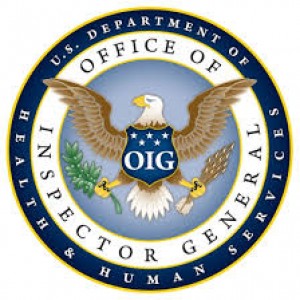 The U.S. Office of Inspector General (OIG) from the Department of Health & Human Services, has granted a favorable advisory opinion regarding a proposal for a patient assistance program to be established by a charitable foundation, as announced in a recent press release. The purpose of the program is to offer copayment assistance to patients who suffer from Crohn’s disease and ulcerative colitis and are in financial need, including those patients already covered by federal health care programs.
The U.S. Office of Inspector General (OIG) from the Department of Health & Human Services, has granted a favorable advisory opinion regarding a proposal for a patient assistance program to be established by a charitable foundation, as announced in a recent press release. The purpose of the program is to offer copayment assistance to patients who suffer from Crohn’s disease and ulcerative colitis and are in financial need, including those patients already covered by federal health care programs.
OIG has confirmed its opinion that had already been suggested about the assistance program in past reports, which approved cost-sharing subsidies to bona fide, charitable organizations that receive donations from donors whose products are supported by cost-sharing subsidies. Now, the department has approved the program, which creates two disease funds, one for each of the conditions.
In order to apply the assistance, will need to be certified following a selection conducted by their health care providers or practitioners and the establishment of a treatment regimen. While under the assistance program, whose amount is defined by a preset sliding scale, patients would be free to change providers, practitioners, suppliers, drugs and insurance plans at any time.
After a year of either full or partial assistance, patients may reapply for the program. On the other hand, the foundation is responsible for certifying the availability of all drugs, including generics and bioequivalents, covered by insurance. Under normal circumstances, the financial assistance may be granted directly to the pharmacy or other health care provider or supplier.
Even though there are no restrictions of sources’ donations, including pharmaceutical manufacturers, the OIG determined that “no donor or individual affiliated with a donor may serve on the Foundation’s Board. Moreover, while the Foundation may give the donors aggregate data regarding the number of claims or the average amount of grants, the Foundation will not provide any individual patient information or data related to the identity, amount or nature of drugs subsidized under the proposed arrangement,” as stated in the press release.
In order to avoid direct or indirect influences from donors, the OIG also recommended the foundation to work independently, as a tax-exempt, charitable organization. The patients will maintain their freedom of choosing health care providers, suppliers, drugs or plans, and the foundations will not be able to interfere. In addition, the foundation must not provide the donor with access to information on the patients.
Even though the OIG considered the risk of fraud and abuse, the department concluded it was a low one, as they stated that the foundation “would determine eligibility for assistance solely based on financial need without considering the identity of the patient’s health care providers, practitioners, suppliers or drugs, or the identity of any donor that has contributed to the Specified Disease fund.” In addition, the services would be provided “on a first come, first serve basis, and will not recommend, or arrange for the patient’s use of any particular practitioner, provider or supplier. The patients would not be informed of the identity of any donors.”

